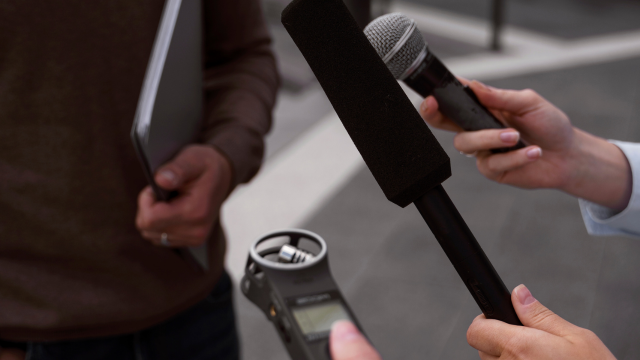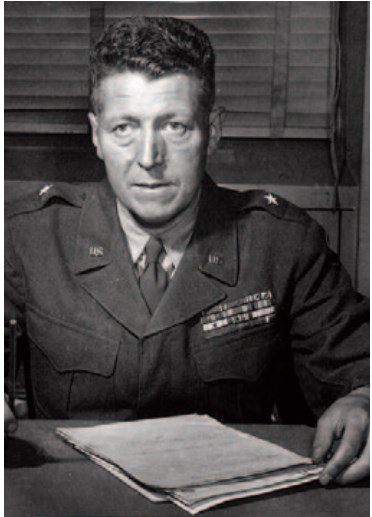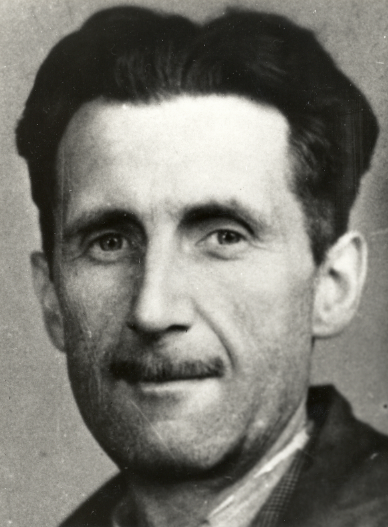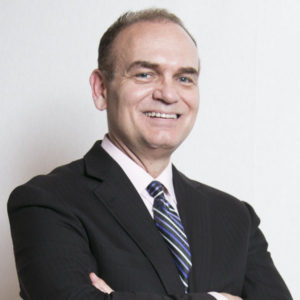In the dynamic arena of politics, the power of public speaking cannot be overstated. Whether you’re a burgeoning political figure or a seasoned leader, the ability to effectively communicate your message, connect with your audience, and inspire action is crucial. In this article, we’ll delve into the art and science of public speaking, explicitly tailored for politicians at both beginner and advanced levels.

Public speaking in politics is more than just delivering a message; it’s about building a narrative that resonates with the hearts and minds of your audience. For a beginner, this can seem daunting. However, the key is understanding the issues that matter to your constituents and weaving those concerns into your speeches.
Every word and gesture should align with the broader narrative of your political ideology and campaign objectives. This alignment ensures that your message is not only heard but also felt, creating a more profound and lasting impact. Remember, in politics, people often vote based on emotions and values as much as, if not more than, on policies and logic.
Action Item
Speak with purposeful pauses and maintain steady eye contact to project confidence and allow your key messages to resonate with the audience.
For the advanced politician, public speaking is an opportunity to reinforce and expand your influence. At this stage, it’s crucial to refine your ability to respond to unexpected questions and scenarios with poise and confidence. This agility in communication signifies a leader who is knowledgeable but also adaptable and relatable.
Advanced public speaking also involves understanding the power dynamics in various speaking contexts, be it a town hall meeting, a legislative assembly, or a national television debate. Being adept at navigating these different environments while maintaining your core message and personal authenticity is what sets apart truly influential political speakers. In all, whether you’re at the beginning of your political journey or well into it, mastering public speaking is an ongoing process that requires dedication, self-awareness, and a genuine commitment to your constituents.
Understanding the Role of Public Speaking in Politics

Before we dive into the how-tos, it’s essential to understand the role public speaking plays in politics. It’s not merely about delivering information; it’s about persuasion, inspiring trust, and forging a connection with your audience. Public speaking is the vehicle through which politicians can influence public opinion, rally support, and advocate for change.
The art of public speaking in politics also extends to the subtle yet powerful task of shaping narratives. How a politician speaks about issues can significantly influence how the public perceives these issues. The choice of words, the tone, and the accompanying non-verbal cues contribute to reinforcing or challenging existing public perceptions. Great political speakers have often changed the course of public discourse not just by what they say but by how they say it.
Pro Tip
Frame your message around the audience’s core values and needs to make a lasting impact and build trust.
Whether invigorating a base, presenting a vision, addressing concerns, or responding to opposition, effective public speaking can distinguish between a message that resonates and one that falls flat. Furthermore, public speaking is an invaluable tool for building a politician’s brand. In a landscape crowded with messages and ideologies, how a politician communicates can help differentiate them from their peers.
It’s through speaking engagements that politicians can showcase their leadership qualities, empathy, and competence. The consistency of their speaking style, the authenticity of their delivery, and their ability to connect with various demographics are all crucial elements that define their public persona. Public speaking isn’t just about conveying a message; it’s about embodying the ethos of the political figure, giving a voice to their values, and ultimately, forging a lasting bond with the electorate.
Beginning Your Journey in Public Speaking

- Know Your Audience: As a beginner, your first task is to understand your audience. Who are they? What are their concerns? Tailor your message to resonate with their values and experiences.
- Mastering the Basics: Focus on clarity of speech, appropriate pacing, and effective use of pauses. Don't underestimate the power of body language – your posture, gestures, and facial expressions are pivotal in conveying your message.
- Authenticity is Key: People connect with authenticity. Relate personal anecdotes and experiences that connect with your political vision. It helps humanize you and makes your message more relatable.
- Practice Makes Perfect: Rehearse your speeches. Start small - in front of a mirror, then with a small group of friends or colleagues. Feedback is invaluable, so be open to constructive criticism.
Advanced Techniques for the Seasoned Politician

As you grow in your political career, your public speaking skills must evolve. For the seasoned politician, advanced public speaking is about mastering the subtleties of rhetoric and the nuances of persuasive communication. It involves an acute awareness of not just what is being said but how it’s being perceived.
This level of expertise means being able to read the room and adapt your message on the fly, whether you’re addressing a local community gathering or speaking on the national stage. It’s about integrating storytelling with factual data, creating a narrative that is both emotionally resonant and intellectually compelling. Advanced speakers can use rhetorical techniques like metaphors, analogies, and strategic repetition to emphasize their points, making their speeches more memorable.

They understand the power of pacing and tone, using them to build momentum and engage the audience fully. At this stage, public speaking is more than a skill; it becomes an art form that can sway opinions, shape policies, and define a politician’s legacy. Here’s how:
- Mastering the Art of Storytelling: Advanced public speaking goes beyond just delivering facts; it's about weaving a narrative. People remember stories, not just data and statistics. Craft your speeches to tell a story that aligns with your political message.
- Rhetorical Devices: Incorporate rhetorical tools like metaphors, analogies, and repetition for emphasis. These tools make your speech more compelling and memorable.
- Handling Q&A Sessions: This is where many politicians stumble. Anticipate difficult questions and prepare your responses. Stay calm and composed, and if you don't know the answer, it's okay to admit it and promise to get back with the information.
- Emotional Intelligence: Develop your ability to read the room. Adjust your tone and content based on the audience's reactions. Connecting emotionally can elevate your speech from good to great.
Tips for Both Beginners and Advanced Speakers

- Stay Informed and Updated: Whether you're just starting or have years of experience, staying informed about current events and trends is vital. This knowledge not only adds depth to your speeches but also prepares you for impromptu speaking opportunities.
- The Power of Pause: Effective use of pauses can add emphasis to your points and allow your audience to absorb what you've said. Take your time with your speech.
- Feedback is Your Friend: Regular feedback is crucial for improvement. Seek it out, listen to it, and act on it. This is how you grow as a public speaker.
- Dealing with Nervousness: It's normal to feel nervous, regardless of your experience level. Techniques like deep breathing, visualization, and positive self-talk can help manage these nerves.
- Consistent Branding: Ensure your speaking style aligns with your political brand. Consistency in your message and style helps build trust and recognition among your audience.
Leveraging Technology and Media

In today’s digital age, a politician’s public speaking skills must extend to virtual platforms. The development of social media and digital channels has led to a revolution in how politicians engage with their audience. Now, more than ever, a politician’s reach is not limited to town halls or rallies; it spans across continents through Twitter feeds, Facebook posts, Instagram stories, and YouTube videos.
This digital expansion requires a new set of public speaking skills. Politicians need to be adept at communicating in concise yet impactful ways, as social media often demands brevity and immediacy. They must also be savvy in using these platforms to create a dialogue, not just broadcast their message.
Action Item
Use relatable stories and real-life examples to connect with your audience and make your message more memorable.
Engaging with comments, hosting live Q&A sessions, and responding to current events in real time are all part of this new digital oratory. In addition, the rise of virtual meetings and webinars has necessitated a shift in public speaking techniques. Where once body language and stage presence were paramount, now the focus is on clear audio, adequate lighting, and maintaining engagement through a screen.
Politicians must learn to convey their authenticity and charisma through a lens, often in a more intimate setting, like their homes, which adds a different dimension to their public image. They must also be mindful of the technical aspects of these platforms, understanding how to utilize them to maximize impact.
The challenge is to keep the audience engaged without the immediate feedback that a live, in-person audience provides. This new era of digital public speaking calls for a blend of traditional oratory skills and modern technological savvy, a combination that is becoming increasingly essential in the political landscape.

- Social Media Savvy: Understand how to engage with your audience through social media. Short, impactful messages work best here. Use these platforms to give a sneak peek of your speech or to continue a conversation post-event.
- Virtual Engagements: As virtual meetings and webinars become more prevalent, learning to speak effectively through a camera is as important as speaking in person. Practice looking into the camera to create a sense of eye contact with your audience.
Conclusion

Public speaking is an art form, especially in the world of politics. It’s a skill that requires constant nurturing, regardless of whether you’re just starting or have been in the political arena for years. Remember, every speech is an opportunity to connect, persuade, and inspire. Use these opportunities wisely to build a lasting impact. Keep honing your skills, stay authentic, and, most importantly, believe in the message you are conveying. Your passion and conviction are your most powerful tools in swaying public opinion and effecting change.







